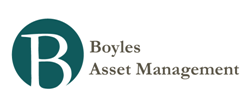Bernanke and the Beast - By Greg Mankiw
IS galloping inflation around the corner? Without doubt, the
Let’s start with first principles. One basic lesson of economics is that prices rise when the government creates an excessive amount of money. In other words, inflation occurs when too much money is chasing too few goods.
A second lesson is that governments resort to rapid monetary growth because they face fiscal problems. When government spending exceeds tax collection, policy makers sometimes turn to their central banks, which essentially print money to cover the budget shortfall.
Those two lessons go a long way toward explaining history’s hyperinflations, like those experienced by
…..
Investors snapping up 30-year Treasury bonds paying less than 5 percent are betting that the Fed will keep these inflation risks in check. They are probably right. But because current monetary and fiscal policy is so far outside the bounds of historical norms, it’s hard for anyone to be sure. A decade from now, we may look back at today’s bond market as the irrational exuberance of this era.
- 2008 Fomc Meeting Excerpt
I’ve only read a little of the transcripts so far, but it is pretty interest to read what was going on inside the Fed in real time during the financial crisis. Here’s one example, which is a little speech Bernanke gave during an October 2008 FOMC...
- Hussman Weekly Market Comment: Out On A Limb - An Investor's Guide To X-treme Monetary And Fiscal Conditions
Government intervention in the U.S. economy is approaching the point where probable long-term costs exceed short-term benefits – straining to maintain the pace of extraordinary fiscal and monetary measures that have repeatedly nudged the U.S. economy...
- John Mauldin: Can “it” Happen Here?
The beginning of the end of the Weimar Republic was some 89 years ago this week. There is a stream of opinion that the US is headed for the same type of end. How else can it be, given that we owe some $75-80 trillion dollars in the coming years, over...
- Hussman Weekly Market Comment: Bubble, Crash, Bubble, Crash, Bubble...
Last week, the Federal Reserve confirmed its intention to engage in a second round of "quantitative easing" - purchasing about $600 billion of U.S. Treasury debt over the coming months, in addition to about $250 billion that it already planned to purchase...
- The Absolute Return Letter - November 2010: Four Rather Sick Patients
For a world which continues to be on life support – in the form of unsustainably large fiscal stimulus and near zero interest rates – policy makers are fast running out of options. One of the options left is quantitative easing and rumours are rife...

